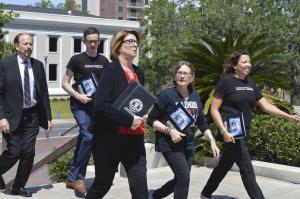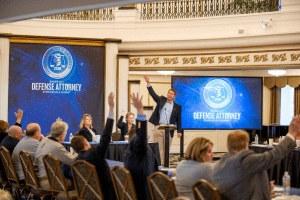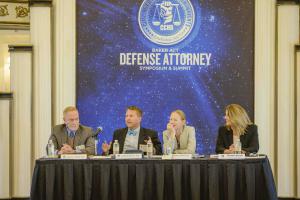
The Citizens Commission on Human Rights is a nonpolitical, nonreligious, nonprofit organization dedicated solely to eradicating mental health abuse and enacting patient and consumer protections.

CCHR Florida hosts Continuing Education Baker Act Seminars for attorneys and mental health professionals.
Vague language and a lack of any real penalty for violating the law is resulting in people being held against their will longer than the allowed 72 hours.
CLEARWATER, FLORIDA, UNITED STATES, January 3, 2022 /EINPresswire.com/ — According to the Baker Act Reporting Center, there were more than 200,000 involuntary psychiatric examinations, called a Baker Act, initiated during 2018/2019 which was an increase of 57.88% from 2008/2009 while the population increase was only 11.43%. [1]
Florida law allows for a person taken into custody under a Baker Act to be held for up to 72 hours for evaluation and requires that an examination to determine if the criteria have been met to hold a person be initiated during the first 24 hours for adults and the first 12 hours for children. [2]
But there are no real penalties for violating this law and some of the language is in conflict with the Florida Administrative Code resulting in some people being held longer than legally allowed.
The Florida chapter of the Citizens Commission on Human Rights (CCHR), a mental health watchdog organization, believes that immediate reformation of the Baker Act is needed in order to protect the mental health human rights of Floridians.
“We receive too many calls on our abuse hotline involving the ‘re-Baker Acting’ of a person or a person not being discharged immediately because it is a weekend or holiday,” stated Diane Stein President for CCHR in Florida. “Re-Baker Acting is not even legal and in order to be a Baker Act Receiving Facility you have to be fully operational 24 hours a day 7 days a week.”
Florida Administrative Code 65E-5.351 Minimum Standards for Designated Receiving Facilities clearly states that any facility designated as a receiving facility failing to comply with code may have their designation suspended or withdrawn and that each receiving facility shall have policies and procedures that prescribe, monitor and enforce all requirements specified in the chapter. Yet, this is not being followed and the penalty for failure to comply is not being enforced.
“Part of the problem is that the language in statutes and the language in the codes do not match up exactly and are left open to interpretation. Since the penalty for non-compliance in the code is not administered and the statute really does not provide for any penalty of consequence, violations of people’s right to liberty are just sort of shrugged off,” said Diane Stein.
As the leading proponent for mental health human rights in Florida, CCHR believes that these violations of rights need to be addressed through a simple change to the Florida statutes to match the language in the existing codes and to enforce the existing penalty of license suspension or revocation for violations.
In order to educate people on their rights, CCHR regularly holds free workshops on the Baker Act delivered by attorney Carmen Miller. Mrs. Miller held the position of Assistant Public Defender in the Thirteenth Circuit for many years in Tampa, and is now in the private sector specializing in cases of those who are involuntarily committed under the Baker Act. For more information on the workshop or the protection of rights under the mental health law please call 727-442-8820.
About CCHR: Initially established by the Church of Scientology and renowned psychiatrist Dr. Thomas Szasz in 1969, CCHR’s mission is to eradicate abuses committed under the guise of mental health and enact patient and consumer protections. L. Ron Hubbard, founder of Scientology, first brought psychiatric imprisonment to wide public notice: “Thousands and thousands are seized without process of law, every week, over the ‘free world’ tortured, castrated, killed. All in the name of ‘mental health,’” he wrote in March 1969.
Sources:
[1] Baker Act Reporting Center https://www.usf.edu/cbcs/baker-act/documents/ba_usf_annual_report_2018_2019.pdf
[2] Chapter 394 Mental Health http://www.leg.state.fl.us/statutes/index.cfm?App_mode=Display_Statute&URL=0300-0399/0394/0394.html
Diane Stein
Citizens Commission on Human Rights of Florida
+1 727-422-8820
email us here
Visit us on social media:
Facebook
Twitter
LinkedIn

